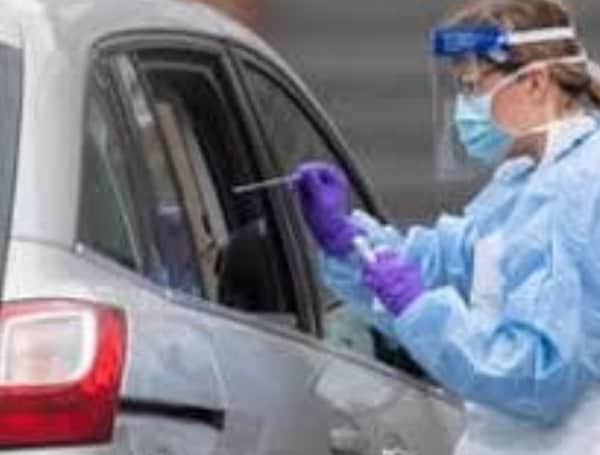It’s been a rough couple of days for the COVID fearmongers. For one thing, a University of Louisville study torpedoed the idea that mask mandates
It’s been a rough couple of days for the COVID fearmongers.
For one thing, a University of Louisville study torpedoed the idea that mask mandates work.
“We hypothesized that statewide mask mandates and mask use are associated with lower COVID-19 case growth rates in the United States,” the authors noted.
How’d it turn out?
“Randomized control trials have not clearly demonstrated mask efficacy against respiratory viruses, and observational studies conflict on whether mask use predicts lower infection rates,” they wrote.
“Case growth was not significantly different between mandate and non-mandated states at low or high transmission rates, and surges were equivocal,” they added.
“Mask use did not predict Summer 2020 case growth for non-Northeast states or Fall-Winter 2020 growth for all continental states. Mask mandates and use are not associated with slower state-level COVID-19 spread during COVID-19 growth surges.”
Hmm. Mask mandates didn’t work.
So what about the idea of a somewhat normal, pre-vaccine progression toward herd immunity?
Dr. Marty Makary of Johns Hopkins University’s medical school, and a frequent critic of most of the COVID policies we’ve seen over the past 14 months, argued recently we’re largely there.
“More studies are affirming the power of natural immunity, despite the old guard establishment dismissing it and its contribution to population immunity,” he tweeted last week.
Markary was pointing to a study by Washington University’s medical school in St. Louis that was recently published in the science journal Nature. “There is more data on natural immunity than there is on vaccinated immunity because natural immunity has been around longer,” Markary told the One America News Network.
Washington University, in a press release about the study, noted that people who had suffered through mild cases of COVID-19 still have immune cells in their body that emit antibodies against the virus. The study found that once the illness passes, those cells migrate to the bone marrow and hibernate, awaiting the next bout.
“Such cells could persist for a lifetime, churning out antibodies all the while,” the release noted, meaning that “repeated bouts of illness are likely to be uncommon.”
The school quoted Ali Ellebedy, an associate professor of pathology & immunology, and senior author of the study.
Ellebedy observed, “Last fall, there were reports that antibodies wane quickly after infection with the virus that causes COVID-19, and mainstream media interpreted that to mean that immunity was not long-lived. But that’s a misinterpretation of the data.”
“It’s normal for antibody levels to go down after acute infection, but they don’t go down to zero; they plateau,” Ellebedy added. “Here, we found antibody-producing cells in people 11 months after first symptoms. These cells will live and produce antibodies for the rest of people’s lives. That’s strong evidence for long-lasting immunity.”
Markary now believes at least half the country has developed a natural immunity to the virus.
So, that would suggest that once someone got sick they were naturally protected and likely did not need a vaccine.
Finally, the journal Science noted research into those plexiglass barriers that went up in schools, restaurants, and stores.
The researchers – from Johns Hopkins, Princeton, and the University of Geneva in Switzerland – looked at transmission rates in schools, the varied approach to which gave them a good lab to see what worked and what didn’t.
One finding: Daily screenings for COVID symptoms among people at schools offered greater risk reductions than average steps, while teacher mask mandates and scuttling extracurricular produced similar but not as large results. “In contrast, closing cafeterias, playgrounds, and use of desk shields are associated with lower risk reductions (or even risk increases),” the researchers noted.
As Reason magazine columnist Liz Wolfe noted of this outcome, “For a virus that spreads via airborne transmission of aerosols … these plastic barriers between (restaurant) diners were always a confusing addition.”
“Think of the particles that disperse through the air when someone smokes a cigarette. A plastic barrier wouldn’t prevent you from smelling that cigarette and breathing some of that same air,” Wolfe added.
And noting the study of those schools, Wolfe pointed out, “Hygiene theater gives people a false understanding of how this virus actually works and which preventative measures to take. Pervasive COVID anxiety should not be used to justify silly rituals, especially when there’s good evidence a ritual may hurt us in the end.”
Support journalism by clicking here to our gofundme or sign up for our free newsletter by clicking here
Android Users, Click Here To Download The Free Press App And Never Miss A Story. It’s Free And Coming To Apple Users Soon.

COMMENTS